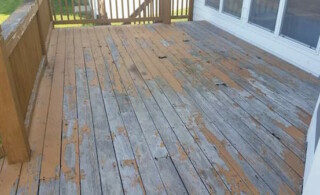
For a victim of abuse to leave their current situation, they must have a safe place to go. While the proverbial roof over their head may be enough in the short term, a truly welcoming space designed with your guest’s needs in mind can help facilitate the transition from victim to survivor.
Abuse of any kind is a form of trauma. Research into trauma-informed design shows that a person’s physical environment affects a person’s overall well-being, including their sense of dignity and self-worth, and improves their attitude, mood, and behavior.
If you’re welcoming a survivor of abuse into your home, there are a few simple steps you can take to create a space that promotes healing. Read on to learn more about how a thoughtfully-designed and decorated space facilitates healing.
Address Anxiety
Many survivors of abuse struggle with post-traumatic stress disorder (PTSD). One common symptom of PTSD includes anxiety, which can manifest as night terrors, flashbacks, or uncontrollable thoughts. While paint color, artwork, and natural light can’t cure a person, calming colors, soothing imagery, and access to nature can positively impact their mood. Here are some tips on how to incorporate stress-free design into an existing space:
- Incorporate nature into the area by adding fresh flowers and greenery. Choose a low-maintenance plant that fits, and it will flourish — like your house guest!
- Avoid bright colors and patterns because they can cause more anxiety Solid colors (particularly shades of blue) lower blood pressure and reduce stress. Choose paint colors, bedding, and upholstery accordingly.
- Declutter. Clutter causes your body to produce more cortisol, known as the “stress hormone.” Make more room with organization hacks like adding vertical storage and using the space under the bed. Then, instead of filling spaces with knick-knacks and decorative pieces, leave some empty space.
- Rearrange. The position of your furniture matters. According to feng shui, you should position your bed away from your door, but not facing it directly.
- Let in some light. Access to natural light is beneficial to your mood and necessary to your overall well-being. Choose a space with windows, but be sure to take care of the privacy and security concerns that we address in the next sections.
Promote Privacy
Often, a survivor’s need for shelter is urgent. If that’s the case, there may be little time to make major modifications to the space, and you should focus on providing a clean, well-equipped area that is both private and secure. The following tasks should be at the top of your list:
- Clean the space and equip it with everything your guest may need, including toiletries and a spare set of clothes, if you have them. He or she may come to you with a few of his or her personal belongings.
- Include a few snacks and drinks in the room to allow your guest the freedom to eat and drink when he or she pleases, without having to ask for food or navigate an unfamiliar kitchen.
- Secure doors and windows. Ensure they open from the inside without a key or special tools. Doors and windows should be able to lock from the inside, however, to give your guest privacy when they want it.
- If you are able, provide a room with a private bathroom so your guest can bathe and use the restroom in private.
- Install a self-contained security camera outside of their bedroom door or install a peephole, even if it faces the inside of the home. You can access standalone smart cameras via a mobile device or computer will allow them to check the feed at any time.
You can handle many of these tasks yourself, but if you need to install a new lock, hire a professional locksmith or contract a home security pro. Be sure to talk to your guest first. He or she may not be comfortable with strangers in the home or may want you there while the work is being done.
Safeguard Sensitive Information
When you are housing a survivor of abuse, it’s safe to assume that all information regarding your guest is sensitive. From their presence in your home to the details of their situation, you should be careful about sharing any details. In the best case scenario, you might make your guest anxious and uncomfortable. In the worst case scenario, however, you put him or her in danger. Here are a few basic guidelines to follow:
- Don’t invite people who are strangers to your guest to your home while he or she is staying with you.
- Don’t tell friends or family members that you have a guest or divulge any other details about the situation.
- Don’t share pictures or information about your guest on social media, even if it’s vague.
If children or teenagers are living in the home, be sure they know the rules as well. If you feel like it would help, make your communal living space a screen-free zone. Place a basket near entryways where everyone can place phones and tablets. This will allow your guest to comfortably interact and share the area without worrying about being caught off guard in a photo or social media post.
Ask & Accommodate
Last, but not least, ask your guest what he or she needs to feel safe and comfortable in your home. If he or she has particular triggers, like loud noises or certain scents, do your best to minimize them. If they have special requests, like a radio in their room to play music or a fan to help them sleep at night, do your best to accommodate them. Most importantly, be flexible. A survivor’s needs are continually changing as he or she adjusts to new circumstances and surroundings.
Inviting a survivor of abuse into your home, whether temporarily in their time of need or as a permanent arrangement, is an admirable task in and of itself. If you have the ability and the means to create a space that will calm their fears and make them feel at home, you can potentially make an even bigger impact on their path to recovery.
 Lead Paint Common Sense
Lead Paint Common Sense  How Do I Get Rid of the Moldy Odor in My Basement?
How Do I Get Rid of the Moldy Odor in My Basement?  How to Remediate Mold
How to Remediate Mold  The Reason for Mold Inspection
The Reason for Mold Inspection  Dry Rot: The Invisible Killer
Dry Rot: The Invisible Killer 

Are You Familiar With This Topic? Share Your Experience.